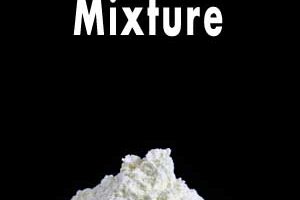Why I am glad that most gluten free foods are NOT fortified.
Seems like a crazy statement, I know. I used to think it would be great if they would fortify the gluten free foods and cereals like so many gluten foods are fortified. However, as I have recently been doing research into the MTHFR gene defect/mutation and the problems and issues with it, I have changed my mind about fortified foods!
Also, some companies are fortifying their gf foods, so make sure you are reading labels.
I am not a doctor. I am sharing what I have learned in the quest to help myself and my family have better health. Please do your own research and talk to your doctor.
What is fortification?
We see fortified on a lot of processed foods, especially cereals. However, there is also fortification to milk and juice. So, what exactly does it mean when a food is fortified?
It means that a nutrient is added to a food when the ingredients in that food never included that nutrient to begin with. For example, milk and juice don’t naturally have vitamin D, but vitamin D is added to most milk and juice products. This addition did help a serious health issue, in children, that seems to be rare, now, rickets.
Rickets is the softening and weakening of bones; which leads to skeletal deformities and breaks, from a lack of vitamin D. The soft and weakened bones can be caused by other medical issues, but lack of vitamin D has been a major cause.
How is fortification different from enriched?
Fortification is done to a food when that nutrient was never a part of it naturally. Enriched foods are foods that have lost some of its nutrients from being processed and so those nutrients are added back in. Keep in mind that the nutrients added back in are almost always in their synthetic form.
Salt has added iodine. It has naturally occurring iodine and has more added for daily recommended iodine levels.
Our bodies tend to absorb and use ingredients that are natural, better than their synthetic counter-parts. Other than this, what could be wrong with fortified and enriched foods? It seems like a wonderful benefit to us and we don’t have to take as many vitamin pills. Right?!
Well, to understand the problem we first need to look at the MTHFR gene defect/mutation.
What is MTHFR?
Everyone agrees that the acronym MTHFR looks like it stands for a really bad phrase! Some people do refer to it by that crude phrase because of the havoc it can cause within a persons body.
“MTHFR mutation—changes to a gene linked to an increasing number of medical conditions, including thyroid disease—has become a controversial topic among scientists. While the National Institutes of Health lists five conditions directly linked to the genetic mutation, a growing body of evidence has linked it, either directly or indirectly, to a host of disorders affecting the heart, eyes, brain, thyroid gland, and other organ systems. The MTHFR mutation is also believed to predispose a person to certain cancers, birth defects, and autoimmune diseases.”
There are 2 MTHFR genes: C677T and A1298C. You can have one copy of one of the genes, one copy of both genes or 2 copies of one or both of these genes. With a gene test you can sort out with your doctor what you have and what is best to do about it.
What does it mean if you have this mutation?
It means that your body can’t properly use folic acid and convert it to the usable form of folate. Deliciously Organic said it best:
“For example, many people have the MTHFR mutation today. When someone with the MTHFR mutation consumes folic acid (the synthetic form of folate) the body can’t process it. The synthetic folic acid builds up in the system and the excess ends up stored as a toxin in organs and fat tissue.”
These stored up toxins can wreak havoc on a persons body! Your baby is still at risk for neural tube defects when your body is unable to properly use the folic acid that you are putting into it.
Here are some other possible problems (not a complete list):
- Recurrent miscarriage
- Tongue tie
- Neurological problems
- Anxiety
- Growth problems
- Thyroid problems
- Anemia
- Breast cancer
- Prostate cancer
- Childhood respiratory problems
Folic Acid verses Folate
Folic acid is widely recommended for pregnant women, especially before pregnancy and early on in their pregnancies. Folic acid was added to foods in the U.S. by FDA mandate in 1996. The purpose was to cut down on neural tube defects in babies. The incidences of these neural defects did drop and the program is considered a success.
However, folic acid is not for everyone! Folic acid is the synthetic version of the naturally occurring vitamin B, folate, that you find in vegetables, fruit, fruit juice, nuts, beans and beef liver. If you can’t convert the folic acid you are at risk for problems associated with low vitamin B levels as well as issues from the unusable folic acid.
So, in short, folic acid is synthetic vitamin B and folate is the natural form of vitamin B.
Why can fortification bad?
There are a lot of benefits to fortified and enriched foods. However, if nutrients that are being added and even mandated by the government, that your body cannot properly use and can cause harmful effects, it is a problem!
It is easy for adults to get too much of your daily vitamins and minerals, if you are eating a lot of processed foods and taking your vitamins. Yet, there can still be gaps in your nutrition and missing other essential vitamins and minerals. Adults are often low on magnesium, dietary fiber, calcium and vitamins A, D, E, and C.
Vitamins are also, often fortified with folic acid. Also, keep in mind that you can’t absorb calcium if you don’t have enough vitamin D.
What to do if you have MTHFR genes?
The following is a very short list, you can find more at this website, and please always discuss these issues and dietary changes and vitamins with your doctor!
- Avoid folic acid- stick with the natural folate
- Eat more fruits, vegetables, nuts and beans
- Talk to your doctor about methylated folate and how much you should be taking
- Eat less processed foods
- Check your multi-vitamin for folic acid and find one that doesn’t contain it (I have no recommendations at this time, I need to do this.)
More links to check out:
There is so much information, it is impossible to put it all in one post! There is a lot that has been written about MTHFR, it’s problems and what to do about it. Knowledge is power. Here are a few other links to articles and blogs that I have been reading.
http://mthfrliving.com/health-tips/mthfr-avoid-folic-acid-in-food/







1 Comment
Leave your reply.